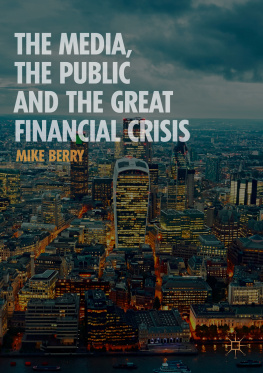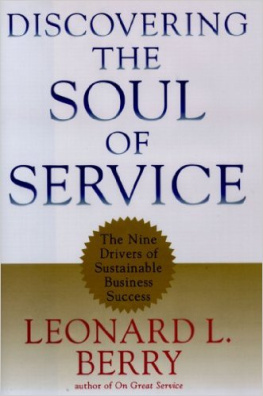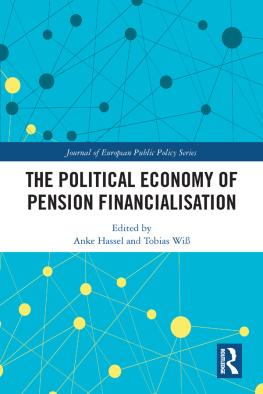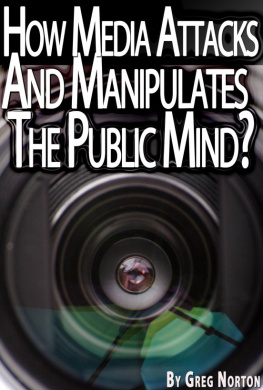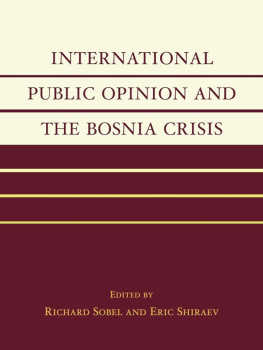Berry - The Media, the Public and the Great Financial Crisis
Here you can read online Berry - The Media, the Public and the Great Financial Crisis full text of the book (entire story) in english for free. Download pdf and epub, get meaning, cover and reviews about this ebook. City: Cham, year: 2019, publisher: Springer International Publishing;Palgrave Macmillan, genre: Politics. Description of the work, (preface) as well as reviews are available. Best literature library LitArk.com created for fans of good reading and offers a wide selection of genres:
Romance novel
Science fiction
Adventure
Detective
Science
History
Home and family
Prose
Art
Politics
Computer
Non-fiction
Religion
Business
Children
Humor
Choose a favorite category and find really read worthwhile books. Enjoy immersion in the world of imagination, feel the emotions of the characters or learn something new for yourself, make an fascinating discovery.
The Media, the Public and the Great Financial Crisis: summary, description and annotation
We offer to read an annotation, description, summary or preface (depends on what the author of the book "The Media, the Public and the Great Financial Crisis" wrote himself). If you haven't found the necessary information about the book — write in the comments, we will try to find it.
The Media, the Public and the Great Financial Crisis — read online for free the complete book (whole text) full work
Below is the text of the book, divided by pages. System saving the place of the last page read, allows you to conveniently read the book "The Media, the Public and the Great Financial Crisis" online for free, without having to search again every time where you left off. Put a bookmark, and you can go to the page where you finished reading at any time.
Font size:
Interval:
Bookmark:
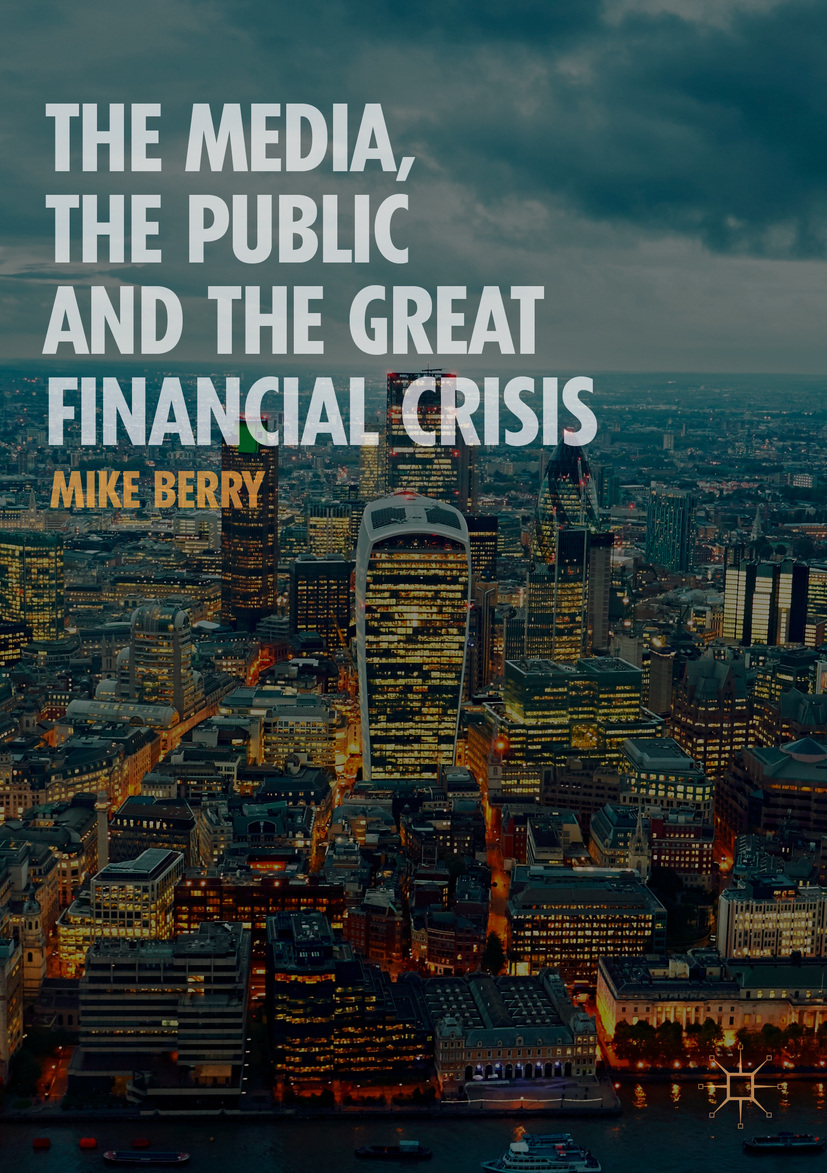

Cover illustration: Jaromir Chalabala / EyeEm / Getty Images
Cover design: Tom Howey
This Palgrave Macmillan imprint is published by the registered company Springer Nature Switzerland AG
The registered company address is: Gewerbestrasse 11, 6330 Cham, Switzerland
Firstly, I would like to thank my colleagues at Cardiff Universitys School of Journalism, Media and Culture who provided encouragement and support during the production of this book: Stuart Allan, Cindy Carter, Stephen Cushion, Lina Dencik, Inaki Garcia-Blanco, Jenny Kidd, Kerry Moore, Karin Wahl-Jorgensen and Andrew Williams. Particular thanks are due to Justin Lewis and Jenny Kitzinger who read chapter drafts and offered invaluable advice on how sections of this book could be improved. I am also indebted to Glyn Mottershead and Richard Sambrook for helping to arrange interviews with journalists.
I would also like to thank academics at other departments who have been supportive of my work. James Curran, Aeron Davis, Natalie Fenton and Des Freedman at Goldsmiths, Jen Birks, Neal Curtis, Tracey Potts and Colin Wright at Nottingham, Laura Basu at Utrecht and Emma Briant at Essex. Thanks too to Nottingham University for providing the small grant that allowed me to carry out the focus group research. I owe a special debt of gratitude to my former supervisor, Greg Philo at Glasgow University, for my initial research training but also for years of support, encouragement and advice.
I would also like to express my gratitude to the journalists and economists whose insights and specialist knowledge were very useful in the production of this book. From the news media thank you to Dan Atkinson, Aditya Chakrabortty, Evan Davis, Larry Elliott, Kevin Maguire, George Pascoe-Watson, Robert Peston, Hugh Pym, Damian Reece and Kevin Schofield. From the economics profession thanks to Panicos Demetriades, Michael Hudson and Howard Reed. I would also like to thank Simon Wren-Lewis who has generously looked at drafts of chapters and offered advice on various aspects of macroeconomics. I am also indebted to Karel Williams and the other academics working at CRESC at the University of Manchester whose work on finance and Britains economic model is cited regularly throughout the book.
The staff at Palgrave Macmillan have been supportive over the many years that it has taken to write this book. In particular I would like to thank Heloise Harding, Martina OSullivan, Lucy Spinger, Lucy Batrouney, Mala Sanghera-Warren and Carolyn Zhang all of whom have shown remarkable fortitude, patience and good humour in the face of countless missed deadlines.
Some of the material in Chap. contains material from Mike Berry (2015) The UK Press and the Deficit Debate, Sociology , 50 (3): 542559, and Mike Berry (2016) No Alternative to Austerity: How BBC Broadcast News Reported the Deficit Debate, Media, Culture and Society , 38 (6): 844863.
Finally I would like to dedicate this book to my partner Louise and my daughter Delilah. Both have been remarkably patient and supportive through the long days and nights that it has taken to complete this book.
When the British banking system was rescued in October 2008 there was much talk of a crisis of capitalism and even newspapers not generally seen as bastions of radicalismsuch as the Financial Times were featuring articles advising readers to brush up on their Karl Marx (Kennedy 2009). Banker bashing dominated the headlines with villains such as Fred the Shred Goodwin of the Royal Bank of Scotland held up to public scorn and ridicule. The title of a book by the journalist Paul Mason (2009) Meltdown: The End of the Age of Greed seemed to capture the belief shared by many that the crisis marked a turning point in British capitalism. Yet within a year, a government White Paper had stepped back from major structural reforms to finance such as breaking up the banks judged too big to fail. Meanwhile, the debate over bank reform had become eclipsed by discussion of Britains budget deficit where by early 2010 a public consensus had solidified in favour of cuts to public spending in order to balance the books (Yougov 2010). That consensus would last through the 2010 and 2015 General Elections playing a pivotal role in consecutive Conservative General Election victories (Ashcroft 2010; Hunter 2015). That the public would twice elect a party committed to cuts to the welfare state appeared to challenge a wide body of academic research which had consistently found that governments struggle to reduce spending in the face of public opposition (Pierson 1994, 1996, 2004; Mahoney 2000; Palier 2001; Taylor-Gooby 2001; Starke 2006).
Ten years on from the near collapse of the British banking system, the consequences of the Great Financial Crisis (GFC) continue to reverberate. Economic growth remains anaemic despite an unprecedented period of ultra-aggressive monetary policy. The rejection of fiscal stimulus in favour of unconventional monetary policyin the form of quantitative easinghas sharply widened wealth and income inequalities, which have been further exacerbated by unprecedented cuts to Britains welfare state ( Financial Times 2016; Ryan 2017). Such policieswhich have been mirrored in the United States and parts of the Eurozonehave had profound political consequences. These include intense political polarisation and the growth of populist parties. From UKIP in Britain to the Front National in France, the Northern League in Italy and Donald Trumps Republican Party, austerity has helped boost political movements which espouse openly racist and/or anti-democratic attitudes (Judis 2016; Wolf 2017; Elliott 2017).
Whilst many books have been written about what caused the GFC and how to fix finance, none until now has examined the role of the mass media in influencing the formation of public opinion on the crisis. This book marks a first attempt to address this by connecting news reports with structures of audience understanding and belief. To achieve this the book focuses on the three elements of the circuit of communicationthe production, content and reception of media messagesbecause only by studying these simultaneously can the process of communicative power be fully understood (Miller and Philo 2002; Philo et al. 2015). The production of news is investigated through interviews with leading journalists and news editors which examine the various factors that structure news accounts. News itself is explored using a series of extensive content analyses of print and broadcast coverage, whilst audience reception processes are unpacked using focus group discussions with the general public supplemented by reference to large scale polling data.
Font size:
Interval:
Bookmark:
Similar books «The Media, the Public and the Great Financial Crisis»
Look at similar books to The Media, the Public and the Great Financial Crisis. We have selected literature similar in name and meaning in the hope of providing readers with more options to find new, interesting, not yet read works.
Discussion, reviews of the book The Media, the Public and the Great Financial Crisis and just readers' own opinions. Leave your comments, write what you think about the work, its meaning or the main characters. Specify what exactly you liked and what you didn't like, and why you think so.

